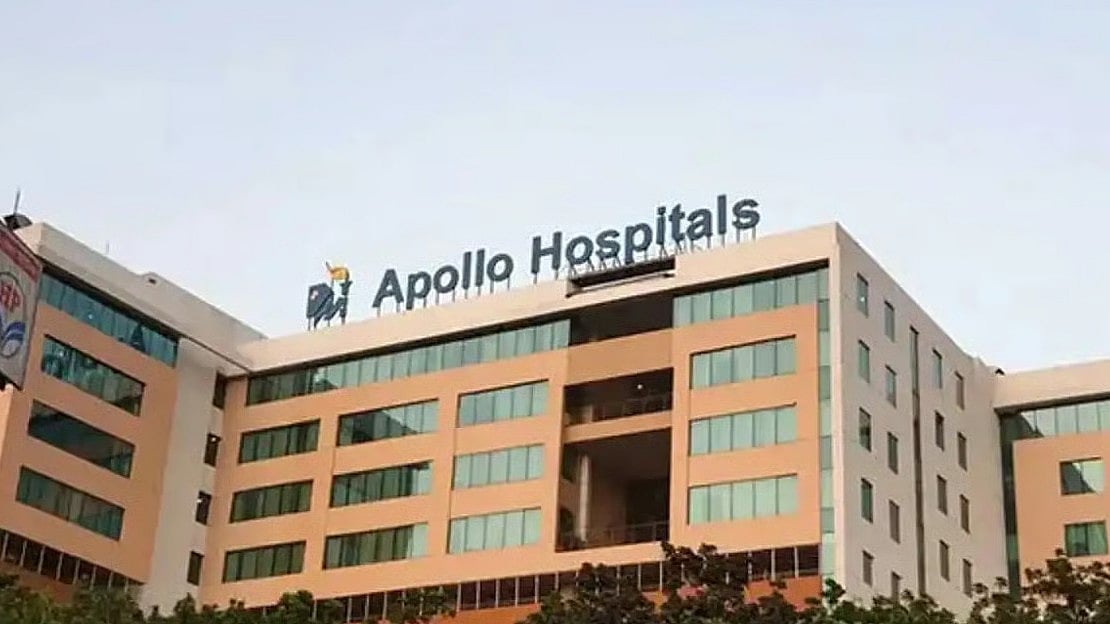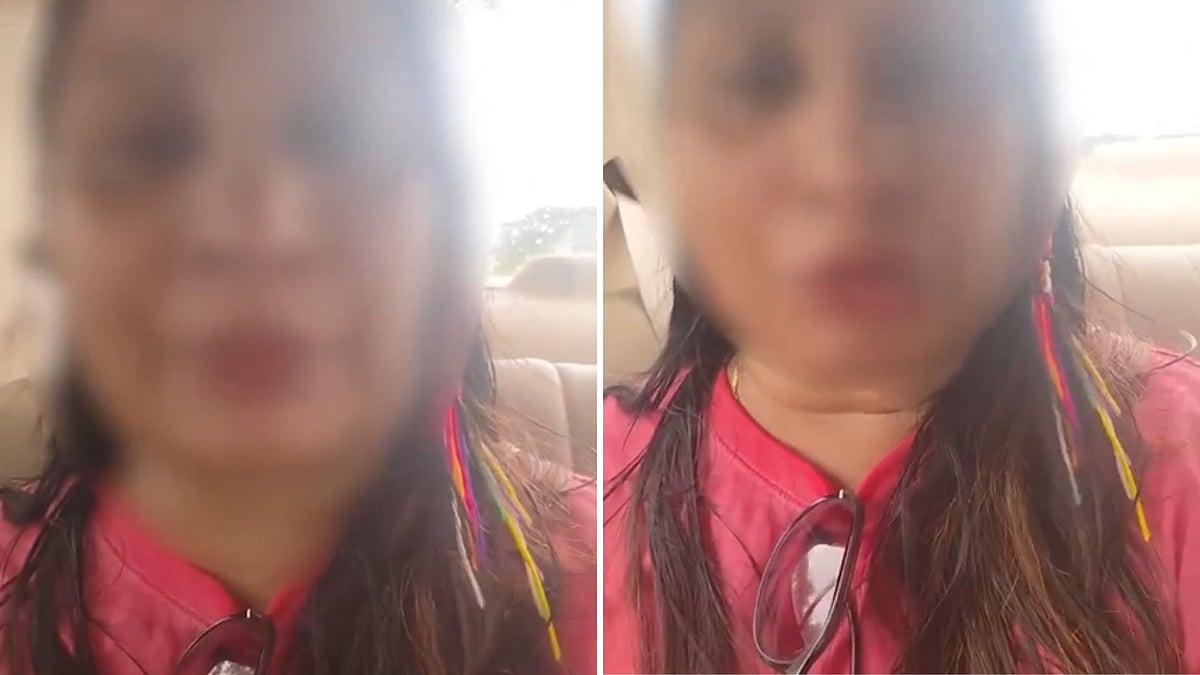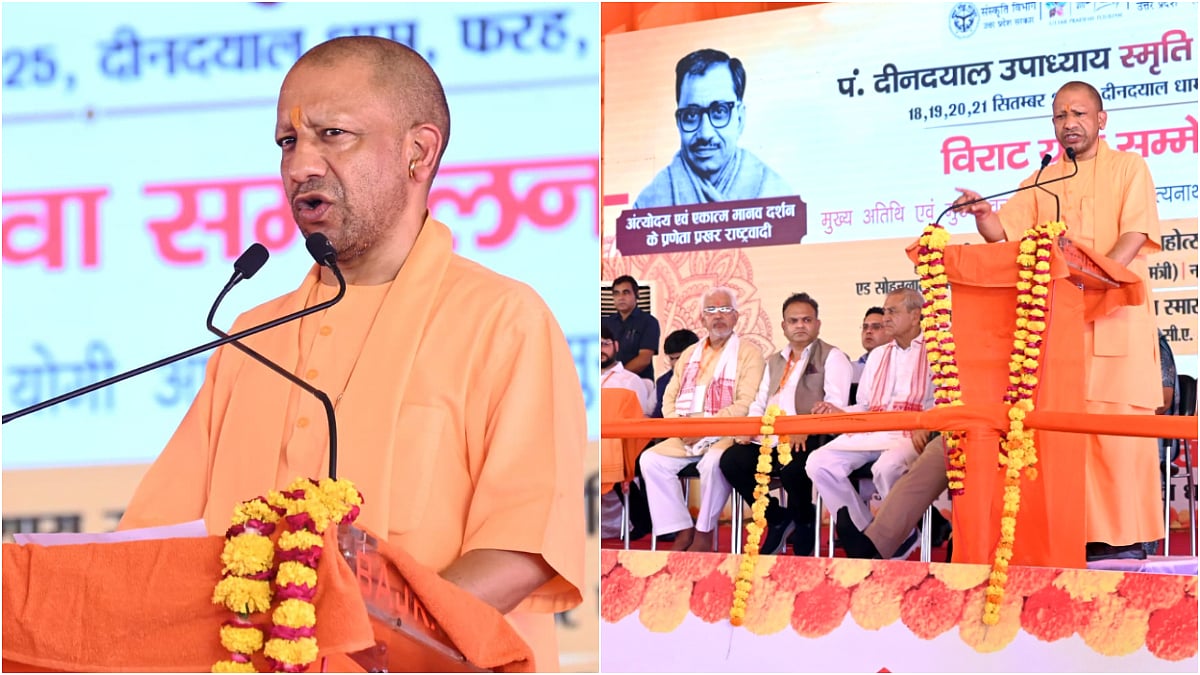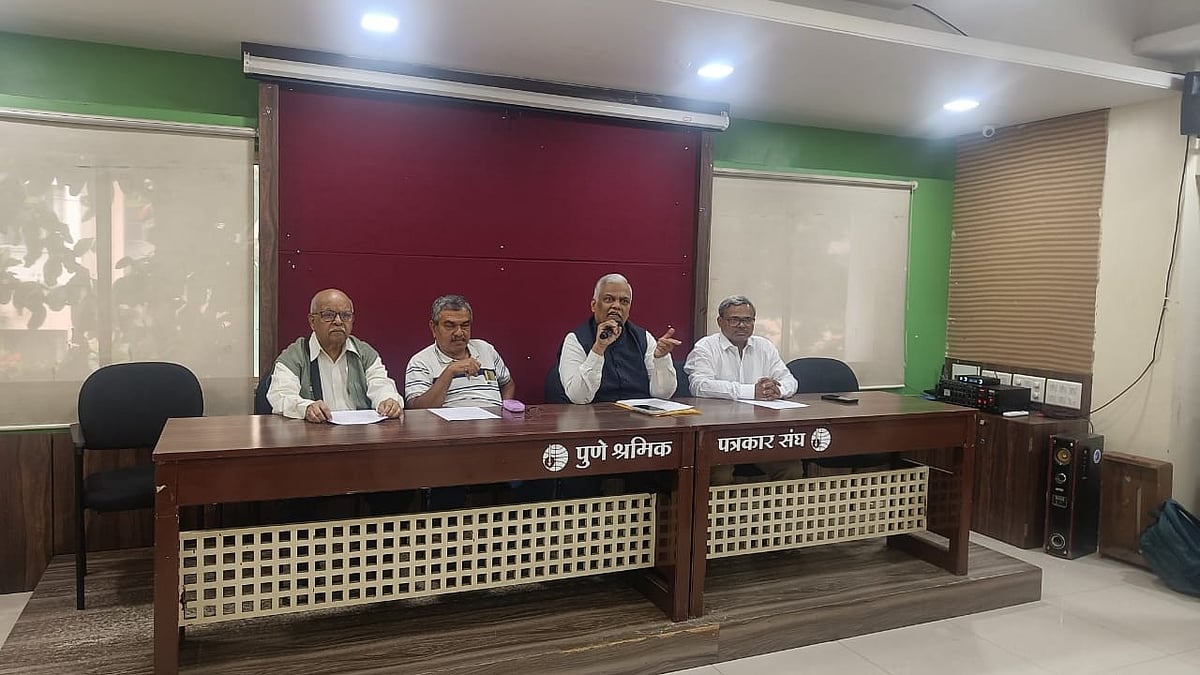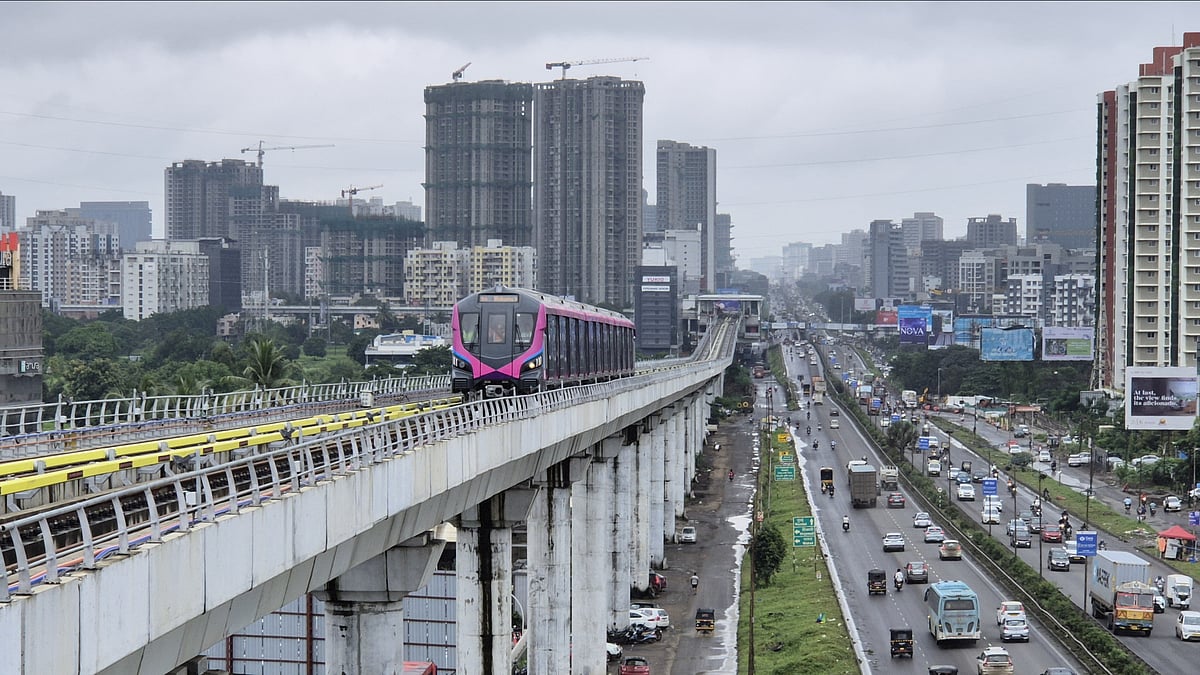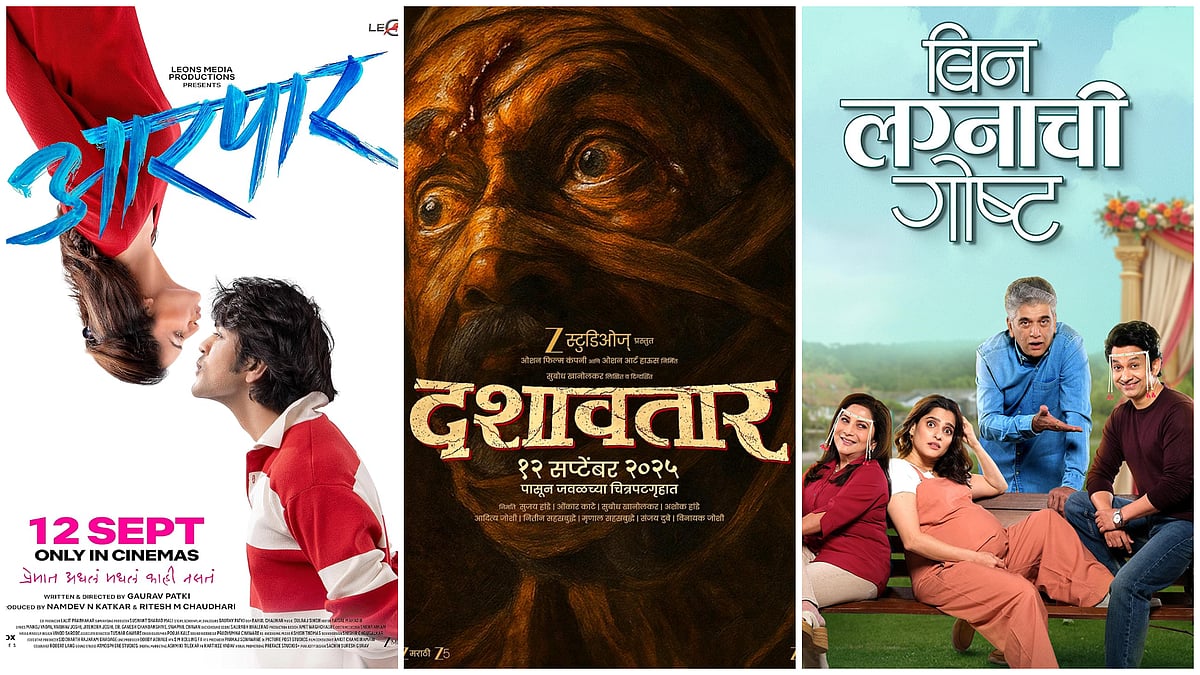It's been 75 years since independence, and we claim the fruits of development have penetrated through direct benefit transfers into the lower strata of society. We also keep fighting about the alleged privacy breach over Aadhar cards and various forms of identification, However, for Ramatukaram Katkari, a 60-year-old man, his battle is different.
20 km from Maharashtra's cultural capital, Pune, in Khadakwalsa, lives a tribal community called the Katkari, who are yet to receive their Aadhar cards or any benefits from government schemes. This is ironic, given that India has a female tribal person at the helm of the presidency, yet many tribes in the country, like the Katkari, remain without identity.
The Katkari community resides in Gore Budruk, a village near the catchment area in Khadakwalsa, with a population of around 30. It’s a close-knit community originally descended from Raigad district in Maharashtra. The tribe’s primary traditional occupation was making Katha, a thickened sap from the Khair tree, and they are also known as Kathodis. However, the majority of them now work as fishermen and laborers.

Ramatukaram Katkari's house |

Ramatukaram has lived in the area for the past 12 years with his wife, five sons, and daughter-in-law. The family's primary occupation is fishing. They catch fish from the Khadakwalsa dam and sell it to the local villagers. The family moved to Pune in search of better wages but barely earns ₹400 a day, despite being skilled at fishing and woodworking. Their expenses have risen, but their income remains stagnant. Unfortunately, they are not alone in this ordeal. The Katkari tribals are excluded from central and state government policies because they lack basic documents like Aadhar cards, PAN cards, and ration cards. It is ironic that, despite having a president from a tribal community, these people have no identity. They live in the dark with no hope, although they do have voter ID cards, as in India, the vote seems to be prioritized above basic human rights.
Alcohol to douse hunger?
Ramatukaram’s voice wavered as he described his ordeal. “Last year, one of my sons drowned in the Khadakwalsa dam due to overdrinking. We earn around ₹400 a day, and it is difficult to manage. Sometimes we have to sleep on an empty stomach. The little hut you see is made by me. I built it with bamboo, basic wood, and leaves. We don’t even have money to buy a tin shed. I don’t have an Aadhar card. I went to the Aadhar Kendra, but I didn’t get it. We want the government to provide us with shelter, especially during the monsoons when it becomes difficult.”
"My wife leads the family. She went to work, and she has a voter ID card. Our only demand is shelter," Ramatukaram added.
The Free Press Journal team visited the local market in the village in search of Ramatukaram's wife and found her selling fish alongside her daughter-in-law.
'No one comes for us'
Suman Katkari, Ramatukaram's wife, speaking to The Free Press Journal, said, “No one comes for us. We are surviving on our own with no government subsidies or benefits. We tried to get all the documents, but we have nothing as proof to start the documentation. We don’t get rations or health facilities. People treat us badly; sometimes they snatch our fish, knowing we won’t get help. Drunkards come and take our fish, bargain with us, and we don’t get a good price. They threaten us. I’m here with my daughter-in-law, and we don’t want to take any risks, so we surrender most of the time.”
Meanwhile, Pradeep Desai, project officer for tribal communities who oversees five districts, including Kolhapur, Sangli, Satara, and Pune, said, "We have collected data on the Katkari tribal community and have completed documentation for around 5,000 people in the past. I will send my team to inspect and collect the data from the area you mentioned and will also open a camp for them to get themselves registered and have the important documents issued."

Suman Katkari, Ramatukaram's wife |
Why is it a challenge for the family to get an Aadhar card?
Due to instances where illegal immigrants obtained Aadhar cards, the authorities have adopted strict measures to ensure proper verification when issuing identity cards, proof certificates, or related documents to strangers or non-verified individuals. As a result, the process has become difficult for people above the age of 18 to obtain Aadhar cards. While Aadhar may not be explicitly compulsory, it has become functionally necessary due to its convenience, efficiency, and integration into various systems.
The Pradhan Mantri Janjati Adivasi Nyaya Maha Abhiyan (PM-JANMAN) and the Pradhan Mantri Janjatiya Unnat Gram Abhiyan, launched in 2023, are programs aimed at improving the lives of tribal communities in India. However, despite these efforts, the conditions of indigenous tribes remain largely unchanged. In 2025, ₹14,925.81 Crore was allocated in the union budget to boost tribal development for a “Viksit Bharat,” with a focus on education, healthcare, and economic empowerment for inclusive growth. However, despite these schemes for tribal communities, society continues to fail in bringing them to equality, all while we boast about Digital India and being the fifth-largest economy in the world.

Indian tribes
India has 635 indigenous tribes, making it home to the second-largest tribal population in the world, which constitutes 8.2% of the country's population. Tribes in India are primarily groups of interlinked families or communities sharing a common culture and dialect. Maharashtra, which has 47 tribes in 15 districts, accounts for 9.27% of the state’s population. Four of these tribes are classified as primitive tribal communities.
The Katkari tribe is one such primitive forest tribe, mainly found in Mulshi, Raigad, and Thane districts of Maharashtra, and they live in extreme poverty. The Katkaris prefer to live on the borders of villages in small hamlets called "Wadi" or "Pada." Their huts are made from mud-daubed karvi sticks with a thatched roof of palm leaves or grass. Traditionally, the Katkaris were hunters-gatherers. Due to their poor economic conditions, they also have nomadic tendencies (TDD, 2001). Until recent legal developments, they were forced to work as bonded labor for their “sheth” (master).


